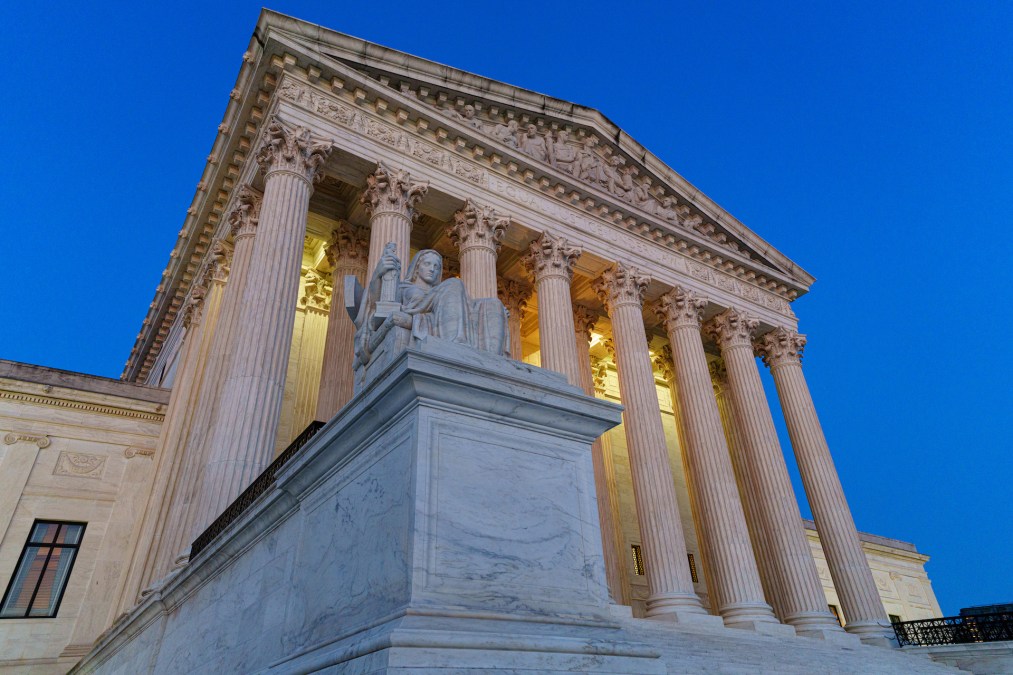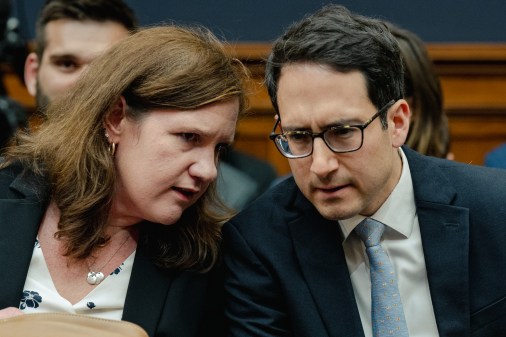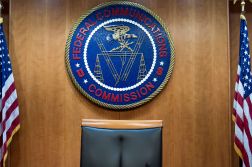Supreme Court blocks FTC commissioner Slaughter’s reinstatement

Rebecca Slaughter’s return-to-work orders have been put on hold for the second time this year, after the U.S. Supreme Court stepped in to block a lower court ruling that ordered her reinstatement at the Federal Trade Commission.
Last week a lower court ruled that Slaughter had been illegally fired by President Donald Trump, citing a 90-year-old Supreme Court precedent upholding the FTC’s independence from the executive branch and preventing presidents from firing commissioners for political reasons.
On Monday, Chief Justice John Roberts halted that order while the Supreme Court considers the case. Roberts provided no explanation for the Supreme Court’s reversal, but ordered the parties in the case to respond by Sept. 15.
Slaughter, who has remained vocal on FTC business and last week expressed her eagerness to return, has been through this once already. Earlier this year, she was briefly reinstated to the FTC by a lower court, only to have that order reversed by another court days later.
Alvaro Bedoya, the other Democratic FTC commissioner Trump purported to fire, has since resigned due to the financial difficulties tied to fighting his dismissal. He described the fight as a lose-lose situation: He is no longer receiving a federal salary as commissioner, and is also prohibited by conflict-of-interest rules from accepting other employment in the meantime.
Bedoya has said that beyond the immediate fates of their jobs, the commissioners are ultimately fighting for an FTC that they believe works in the best interests of the public and is supported by Supreme Court precedent. He has argued the agency — which regulates and enforces against unfair or deceptive business practices, technology, data privacy and other issues — must be insulated from political pressure.
In an online post last week, Slaughter said her top priority was reinstating the FTC’s Click to Cancel rule, a Biden-era regulation that would have forced companies to provide a simple and straightforward means to cancel their paid subscriptions.
Roberts’ order does not specify how the Supreme Court intends to rule on the case. Legal experts and former FTC officials have said it’s no secret that the Trump administration is looking for the court’s conservative majority to overturn Humphrey’s Executor v. the United States, which was unanimously upheld by the Supreme Court in 1935.
The high court’s decision this week to reverse the D.C. District Court of Appeals ruling is also notable because the court voted 2-1 that Slaughter — not the government — deserved the benefit of the doubt while the case was being adjudicated, citing unambiguously clear and binding legal precedent that had not yet been overturned.
That the Supreme Court overturned it anyway suggests they may agree with D.C. Appeals court Judge Neomi Rao, who wrote in her dissent that forcing FTC staff to acknowledge Slaughter’s legitimacy in the face of presidential orders “directly interferes with the President’s supervision of the Executive Branch and therefore goes beyond the power of the federal courts.”
If the Supreme Court does ultimately side with the administration, it would track with what observers such as Berin Szóka, a technology lawyer and president of the think tank TechFreedom, predicted earlier this year. Szóka, who has supported Slaughter and Bedoya’s efforts, wrote in March that “the fired Democratic FTC Commissioners may win early battles in their lawsuits but, in all likelihood, will ultimately lose at the Supreme Court — unfortunately.”
Roberts and the Supreme Court’s conservative majority have “made clear it will not apply Humphrey’s, if it remains good law at all, to today’s more powerful FTC,” Szóka wrote.






